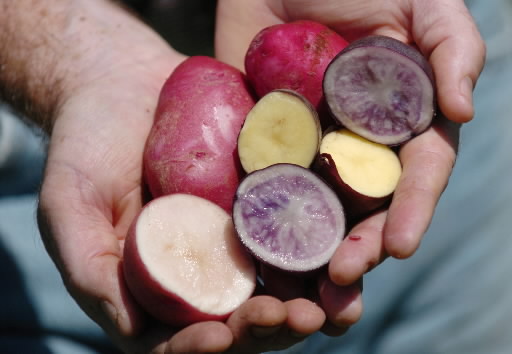
Baked, mashed, roasted, boiled or pan-fried, there’s a lot more that goes into what makes a potato taste the way it does than preparation and condiments.
“A lot of things affect the flavor of individual potato varieties,” said Greg Porter, professor of agronomy with the University of Maine. “There is climate, temperatures, moisture and day length all affect the physiology of the plant and the type of materials that end up in the tuber, but the most important factor in taste is variety.”
Those environmental factors influence the amount of sugars and starches the potato is able to store and help give each variety its own unique flavor and texture.
Porter would know. He’s spent decades carefully selecting and breeding different tuber traits and characteristics to develop new varieties such as the Caribou Russet, introduced to markets last March.
“People tend to like, and are loyal to, certain varieties,” Porter said. “They are used to them and used to the texture, taste and aroma of that variety, and it’s a combination of all those things that factor in to what makes one person like one potato over another.”
To read the rest of “The science behind why one potato is good for mashing and another is better for soups,” an article by contributing Bangor Daily News staff writer Julia Bayly, please follow this link to the BDN online.




